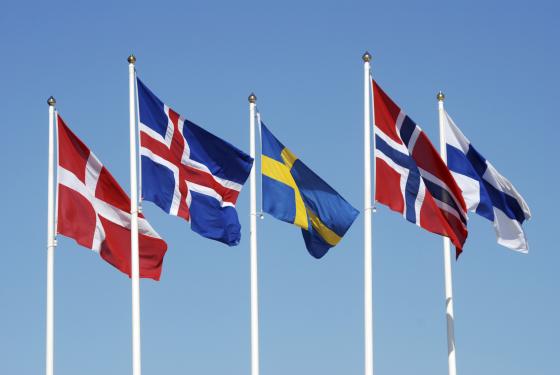Scandinavian views on the gender equal university
Swedish universities have made the most progress in renewing the academic culture and Norwegian institutions have designed effective measures, but in Denmark the prevailing belief is that gender equality has already been achieved.
“International research has previously shown there is great scepticism and opposition towards gender equality measures in the research sector,” says Mathias Wullum Nielsen, a doctoral research fellow at Aarhus University in Denmark.
Nielsen is writing his doctoral thesis with the working title New and persistent challenges to gender equality in academia, which explores structural barriers to gender balance in research. The first part of the thesis deals with legitimization of gender equality. Although the thesis will not be completed until 2015, Nielsen has already made some interesting findings.
According to his research, there are clear differences between the approaches to gender equality taken by the Scandinavian universities.
Gender equality pays off
In the first part of the thesis, Gender Equality in Scandinavian Academia: A Comparative Perspective, Nielsen compares the efforts of six Scandinavian universities to promote gender equality among their research personnel through their own gender equality strategies, action plans and other documents on gender equality.
The University of Oslo and the University of Bergen are the Norwegian universities involved in the study, along with Uppsala University and Lund University in Sweden and the University of Copenhagen and Aarhus University in Denmark.
According to Nielsen, the universities’ arguments give a strong indication of how they perceive and understand the concept of gender equality and what their notion of the “gender equal university” entails.
“For instance, Norwegian researchers Hege Skjeie and Mari Teigen have shown how utilitarian arguments play a key role in the Norwegian gender equality debate. Inspired by this, I have found it interesting to compile an overview of the various arguments in favour of gender equality in a Scandinavian academic context,” he explains.
All six of the universities in Nielsen’s study argue for gender equality using instrumental arguments related to usefulness.
“The utilitarian arguments involve the role of women as untapped potential in the growing international competition for talent, international reputation, innovation and quality. This pervades all six universities’ legitimization of their gender equality efforts,” says Nielsen.
Denmark downplays rights
But while the Swedish and Norwegian gender equality documents also present arguments based on fairness, equal opportunity and prevention of discrimination, these are totally missing in the Danish texts.
“While the Norwegian and Swedish documents usually assume that gender discrimination is a structural problem, the Danish universities’ gender equality policies are more cautious about emphasizing this perspective,” says Nielsen.
“This can be interpreted as an attempt by the Danish universities to make concrete gender equality measures more ‘palatable’, both within the organisations and the broader Danish public sphere,” explains the researcher.
Nielsen believes this tendency is problematic.
“With a one-dimensional focus on quality, competitiveness and innovation, the gender equality issue can end up being reduced to a question of talent development. Quite simply, one of the basic premises and arguments of the gender equality debate is relinquished. The utilitarian argument is placed in opposition to the more general discussion of equal opportunity and rights and of the aim of creating more inclusive, tolerant organizations,” he continues.
Norway has the best measures
In addition to studying gender equality texts, Nielsen compares the various measures implemented at the six universities.
“It’s clear that Norway is the leader in Scandinavia when it comes to using structural, systematic measures to bring about change,” says Nielsen.
The measures include the recruitment of academic personnel to associate professor and adjunct professor positions, moderate gender quotas and financial incentive schemes.

“Structural measures like these play a crucial role in career opportunities for female researchers in academia,” he says.
Sweden changes culture
In Nielsen’s analysis, Sweden is the Scandinavian country that has made the most progress in challenging and restructuring the academic culture. The Swedes have put greater focus on creating more inclusive research environments, and they tend to use bottom-up initiatives.
Sweden has the AKKA programme, a one-year, academic leadership development programme with an integrated gender perspective.
“In Sweden they are also working on the possibility of sanctioning research institutions that do not satisfy requirements to report gender-oriented activities,” explains Nielsen.
“There is no basis for this in Danish legislation. Both Norway and Sweden have also included specific provisions on gender equality in their respective university legislation, which is not the case in Denmark.”
Strong women’s movement
“Generally speaking, political interest in gender equality in academia is more limited in Denmark than in Norway and Sweden,” states Nielsen.
He believes that the reason for these national differences may lie in differences in the national discourses on gender equality.
“In this context, it is important to remember that the general Danish debate on gender equality is characterized by greater consensus than in Norway and Sweden,” he says.
“In Denmark, the debate is based on the notion that a reasonable level of gender equality has already been achieved. Of course this also affects the way in which gender at the universities is discussed.”
Nielsen also believes that the women’s movements in Norway and Sweden have helped to keep gender equality and the underlying discussion of power relations between the gender high on the academic and public agendas.
“This has naturally reverberated throughout the political arena. Through this the women’s movements have influenced the way in which Norwegian and Swedish universities address the issue of gender equality. In comparison, gender policy has played a more modest role in the Danish public sphere and political debate in recent years,” concludes Nielsen.
Will be completed in 2015
In the second and thirds parts of his thesis, Nielsen will shed light on the gender aspects of recruiting academic personnel. He will also look at the evaluation of individual researchers’ achievements in a gender perspective, using Aarhus University as a case study. Nielsen’s thesis is expected to be completed in spring 2015.
Translated by Connie Stultz.
Mathias Wullum Nielsen is a sociologist and doctoral research fellow at Aarhus University. The working title of his thesis is New and persistent challenges to gender equality in academia.
In the first part he compares the efforts of six Scandinavian universities to promote gender equality among their research personnel. In the second and third parts he will use Aarhus University as a case study to shed light on measures for recruiting academic personnel and for evaluating individual researchers’ achievements in a gender perspective.
In the first part of the thesis, Gender Equality in Scandinavian Academia: A Comparative Perspective, Nielsen combines elements of Norman Fairclough’s text-oriented, critical discourse analysis and the French sociologist Luc Boltanski’s six “orders of worth” as developed in “On Justification” (2006) and “The New Spirit of Capitalism” (2005).
Work on the thesis began in February 2012 and is expected to be completed in spring 2015.
